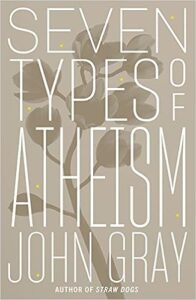[ad_1]
John Grey is an English thinker and creator. Grey retired in 2008 from his place as Faculty Professor of European Thought on the London Faculty of Economics and Political Science.

On this episode of EconTalk, host Russ Roberts hosts John Grey for a dialog on Grey’s ebook Seven Forms of Atheism. Human progress is illusory, Grey says, simply one in all his radical views in measuring the trendy state of faith and atheism. How do Grey’s concepts strike you? Tell us your ideas under; we love to listen to from you.
Roberts and Grey talk about the aim of faith versus science, suggesting faith and tales like Adam and Eve usually are not meant to be literal.
Why was faith created? What’s the relationship between faith and science; are they essentially at odds with each other? How ought to bible tales be learn?
In Grey’s atheistic view, he denies the existence of a creator god, and with this easy gloss, he says the strains between atheism and faith are blurred. Buddhism and polytheism don’t have creator gods. Can somebody be atheistic and observe one in all these religions/methods of life? What does atheism imply to you?
Grey is cynical about human progress; it’s an phantasm, he says. Is progress inside science progress throughout the high quality of civilization? How does the development of data and expertise affect our notion of ‘progress’? Do you agree with Grey that high quality inside our civilization has remained stagnant?
Can people enhance and remodel themselves? Grey is skeptical of human self-improvement, which he believes can not exist with no world of stability. Does self-improvement have solely short-term results? Can individuals ever understand their genuine selves?
Grey and Roberts talk about the tendency for individuals to look down upon those that are non secular as being unintelligent or ignorant. To what extent will faith fade away as individuals turn into smarter? Is faith an antidote to credulity as Grey says it’s?
(0 COMMENTS)
[ad_2]
Source link

